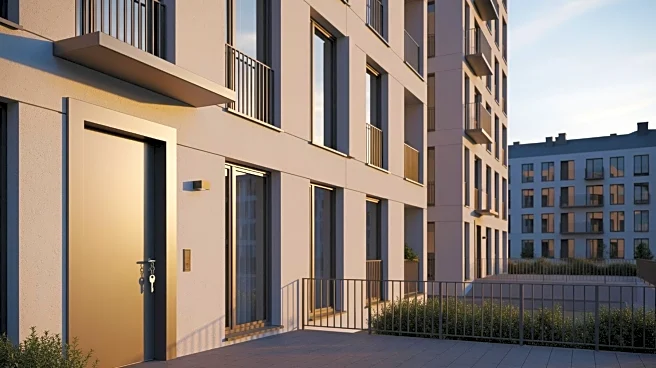What's Happening?
Apartment rental prices in Jacksonville have increased by 4% since last year, with the median rent reaching $1,560 in September. This rise is part of a broader trend observed across the U.S., where rental prices have slightly
decreased from last month's figures. Jacksonville's rental market shows a slight downward trend from August, with one-bedroom apartments now listed at $1,180 and two-bedroom units at $1,390. Despite these increases, Jacksonville's rental prices remain significantly below both state and national medians, offering relatively affordable options compared to other regions.
Why It's Important?
The increase in rental prices in Jacksonville highlights ongoing challenges in the housing market, particularly for renters facing affordability issues. As rental prices rise, it may become increasingly difficult for individuals and families to find affordable housing, potentially exacerbating economic disparities. This trend also reflects broader economic conditions, including inflation and housing demand, which impact rental markets nationwide. Understanding these dynamics is crucial for policymakers and stakeholders aiming to address housing affordability and ensure equitable access to housing.
What's Next?
As rental prices continue to fluctuate, stakeholders in the housing market may need to explore strategies to mitigate affordability challenges. This could involve policy interventions, such as rent control measures or incentives for affordable housing development. Additionally, renters may seek alternative housing options or negotiate rental terms to manage costs. Monitoring these trends will be essential for understanding the evolving dynamics of the rental market and ensuring that housing remains accessible to all segments of the population.
Beyond the Headlines
The rental price increases in Jacksonville may have broader implications for urban development and planning. As cities grapple with housing affordability, there may be a push towards innovative solutions, such as mixed-use developments or community land trusts, to provide sustainable and affordable housing options. These approaches could reshape urban landscapes and influence future housing policies, promoting more inclusive and resilient communities.









